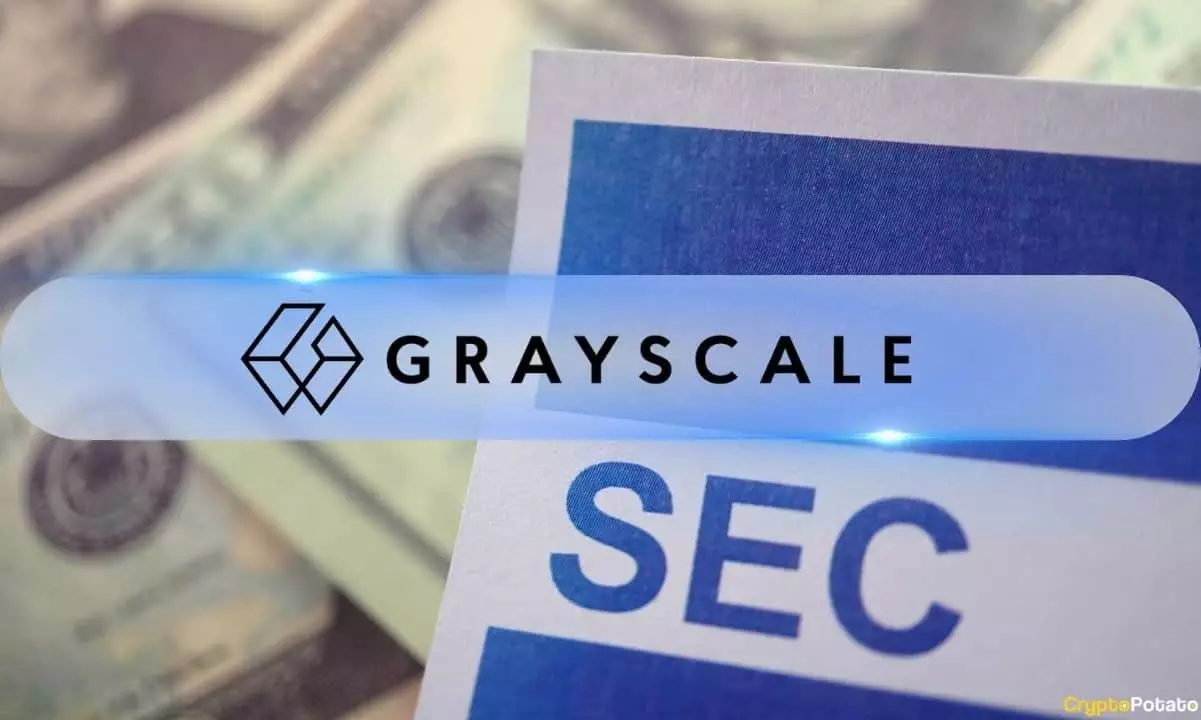In a significant move that reflects the evolving landscape of cryptocurrency investments, Grayscale Investments has submitted a proposal to the U.S. Securities and Exchange Commission (SEC) to transform its diversified crypto fund into an exchange-traded fund (ETF). This decision comes alongside the announcement from Canary Capital, which is looking to establish a spot Litecoin ETF. These developments suggest an increasing interest from firms to achieve regulatory approval for direct crypto ownership among retail and institutional investors.
Grayscale’s Strategic Move
Currently, Grayscale’s Digital Large Cap Fund (GDLC), which is focused on digital assets, has amassed approximately $524 million under management. The fund’s asset allocation is concentrated heavily on Bitcoin (BTC) at 75% and Ethereum (ETH) at 19%, signifying a strong bet on the two dominant cryptocurrencies. The fund also encompasses other digital assets like Solana (SOL), Avalanche (AVAX), and XRP, indicating a diverse portfolio that aims to capture various segments of the crypto market. If the SEC grants approval for the ETF conversion, Grayscale intends to trade this ETF on the New York Stock Exchange (NYSE), enhancing its visibility and accessibility to investors.
Treading on Pathways to Success
Grayscale’s recent efforts have seen the successful transformation of its Bitcoin and Ethereum products into ETFs, demonstrating the company’s proactive approach in navigating the complexities of the SEC’s regulatory framework. The firm’s latest foray with an XRP trust signals their ambition to increase exposure to other cryptocurrencies beyond Bitcoin and Ethereum. Despite regulatory headwinds, especially concerning Ripple’s ongoing battles with the SEC, Grayscale has managed to maintain a positive outlook for the potential of XRP to break into the ETF market.
Grayscale isn’t alone in its pursuit. Recent applications submitted by Bitwise and Canary Capital to the SEC indicate a rising tide of interest in creating XRP-based ETFs, which aim to align with the price movements indicated by the Chicago Mercantile Exchange’s CF Ripple index. This competitive landscape shows that multiple players are vying for a measurable piece of the ETF market, which could foster innovation and potentially result in a broader acceptance of cryptocurrency investment vehicles.
Adding to the discussion, Canary Capital has revealed ambitions to launch an ETF based on Litecoin (LTC), identifying it as a stable and established digital currency within the crypto ecosystem. According to their plans, the proposed ETF would leverage the CoinDesk Litecoin Price Index to determine its net asset value, which could encourage institutional capital flows into Litecoin. Given its market capitalization of approximately $5.3 billion, Litecoin is positioned as the 26th largest cryptocurrency, thus making it an attractive option for investment.
As these developments unfold, both Grayscale and Canary Capital express optimism about a potentially more accommodating regulatory landscape following recent approvals. Such changes could signal a new era in which cryptocurrency funds can thrive within the confines of traditional financial structures, ultimately providing diverse investment opportunities. The increasing scrutiny by regulators may pave the way for clearer guidelines, allowing investment firms to present their products confidently, especially in a time of fluctuating market conditions.
As Grayscale navigates its ETF conversion and other firms pursue similar paths, the landscape for crypto ETFs is at a turning point, with far-reaching implications for investors and the cryptocurrency ecosystem.


Leave a Reply